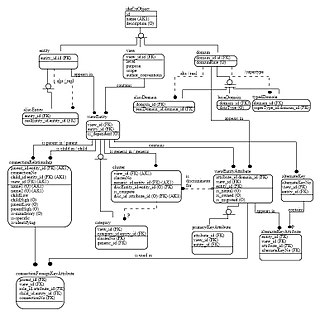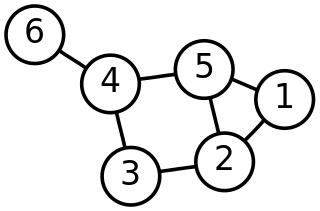Terminology Planning and Language Planning
While the focus of language planning is the deliberate manipulation and development of a linguistic entity to improve communication in society or a language community at large, terminology planning may be language independent or in its objective across languages, aiming at the improvement of communication in a specific domain or application thereof.
Language planning is a deliberate effort to influence the function, structure or acquisition of languages or language variety within a speech community. It is often associated with government planning, but is also used by a variety of non-governmental organizations such as grass-roots organizations as well as individuals. Goals of such planning vary. Better communication through assimilation of a single dominant language can bring economic benefits to minorities but is also perceived to facilitate their political domination. It involves the establishment of language regulators, such as formal or informal agencies, committees, societies or academies to design or develop new structures to meet contemporary needs.
Communication is the act of conveying meanings from one entity or group to another through the use of mutually understood signs, symbols, and semiotic rules.
While terminology planning is an important part of language planning it may be useful for language communities to separate the two activities for simplification of its complexity in order to better focus programmes and resources, and thus receive better results.
Because language planning also concerns the development of the lexicon of a language, and because domain communication consists to a great extent of linguistic representations of concepts there exists a large area of overlapping between the two concepts. The biggest difference lies in the different point of view and scope (and goal).
The following outline is provided as an overview of and topical guide to linguistics:
The Semantic Web is an extension of the World Wide Web through standards by the World Wide Web Consortium (W3C). The standards promote common data formats and exchange protocols on the Web, most fundamentally the Resource Description Framework (RDF). According to the W3C, "The Semantic Web provides a common framework that allows data to be shared and reused across application, enterprise, and community boundaries". The Semantic Web is therefore regarded as an integrator across different content, information applications and systems.
In computer science and information science, an ontology encompasses a representation, formal naming, and definition of the categories, properties, and relations between the concepts, data, and entities that substantiate one, many, or all domains.
A modeling language is any artificial language that can be used to express information or knowledge or systems in a structure that is defined by a consistent set of rules. The rules are used for interpretation of the meaning of components in the structure.
Terminology is the study of terms and their use. Terms are words and compound words or multi-word expressions that in specific contexts are given specific meanings—these may deviate from the meanings the same words have in other contexts and in everyday language. Terminology is a discipline that studies, among other things, the development of such terms and their interrelationships within a specialized domain. Terminology differs from lexicography, as it involves the study of concepts, conceptual systems and their labels (terms), whereas lexicography studies words and their meanings.

An information model in software engineering is a representation of concepts and the relationships, constraints, rules, and operations to specify data semantics for a chosen domain of discourse. Typically it specifies relations between kinds of things, but may also include relations with individual things. It can provide sharable, stable, and organized structure of information requirements or knowledge for the domain context.
Linguistic competence is the system of linguistic knowledge possessed by native speakers of a language. It is distinguished from linguistic performance, which is the way a language system is used in communication. Noam Chomsky introduced this concept in his elaboration of generative grammar, where it has been widely adopted and competence is the only level of language that is studied.
In information science, an upper ontology is an ontology which consists of very general terms that are common across all domains. An important function of an upper ontology is to support broad semantic interoperability among a large number of domain-specific ontologies by providing a common starting point for the formulation of definitions. Terms in the domain ontology are ranked "under" the terms in the upper ontology, and the former stand to the latter in subclass relations.
The Process Specification Language (PSL) is a set of logic terms used to describe processes. The logic terms are specified in an ontology that provides a formal description of the components and their relationships that make up a process. The ontology was developed at the National Institute of Standards and Technology (NIST), and has been approved as an international standard in the document ISO 18629.
Simple Knowledge Organization System (SKOS) is a W3C recommendation designed for representation of thesauri, classification schemes, taxonomies, subject-heading systems, or any other type of structured controlled vocabulary. SKOS is part of the Semantic Web family of standards built upon RDF and RDFS, and its main objective is to enable easy publication and use of such vocabularies as linked data.
IEEE 1471 is a superseded IEEE Standard for describing the architecture of a "software-intensive system", also known as software architecture.
Semantic interoperability is the ability of computer systems to exchange data with unambiguous, shared meaning. Semantic interoperability is a requirement to enable machine computable logic, inferencing, knowledge discovery, and data federation between information systems.

ISO/TC 37 is a technical committee within the International Organization for Standardization (ISO) that prepares standards and other documents concerning methodology and principles for terminology and language resources.
The Semantics of Business Vocabulary and Business Rules (SBVR) is an adopted standard of the Object Management Group (OMG) intended to be the basis for formal and detailed natural language declarative description of a complex entity, such as a business. SBVR is intended to formalize complex compliance rules, such as operational rules for an enterprise, security policy, standard compliance, or regulatory compliance rules. Such formal vocabularies and rules can be interpreted and used by computer systems. SBVR is an integral part of the OMG's model-driven architecture (MDA).
Linguistics is the scientific study of language. It involves analysing language form, language meaning, and language in context. The earliest activities in the documentation and description of language have been attributed to the 6th-century-BC Indian grammarian Pāṇini who wrote a formal description of the Sanskrit language in his Aṣṭādhyāyī.
ICT governance is a term that has evolved out of use within the Australian government and formalised within the Australian standards community. The Australian Standard for Corporate Governance of Information and Communication Technology (ICT), AS8015, defines Corporate Governance of ICT as "The system by which the current and future use of ICT is directed and controlled. It involves evaluating and directing the plans for the use of ICT to support the organisation and monitoring this use to achieve plans. It includes the strategy and policies for using ICT within an organisation."
Frame-based terminology is a cognitive approach to terminology developed by Pamela Faber and colleagues at the University of Granada. One of its basic premises is that the conceptualization of any specialized domain is goal-oriented, and depends to a certain degree on the task to be accomplished. Since a major problem in modeling any domain is the fact that languages can reflect different conceptualizations and construals, texts as well as specialized knowledge resources are used to extract a set of domain concepts. Language structure is also analyzed to obtain an inventory of conceptual relations to structure these concepts.
ISO 25964 is the international standard for thesauri, published in two parts as follows:
ISO 25964 Information and documentation - Thesauri and interoperability with other vocabularies
Part 1: Thesauri for information retrieval [published August 2011]
Part 2: Interoperability with other vocabularies [published March 2013]
In natural language processing, linguistics, and neighboring fields, Linguistic Linked Open Data (LLOD) describes a method and an interdisciplinary community concerned with creating, sharing and (re-)using language resources in accordance with Linked Data principles. The Linguistic Linked Open Data cloud was conceived and is being maintained by the Open Linguistics Working Group (OWLG) of the Open Knowledge Foundation, but has been a point of focal activity for several W3C community groups, research projects and infrastructure efforts since then.





